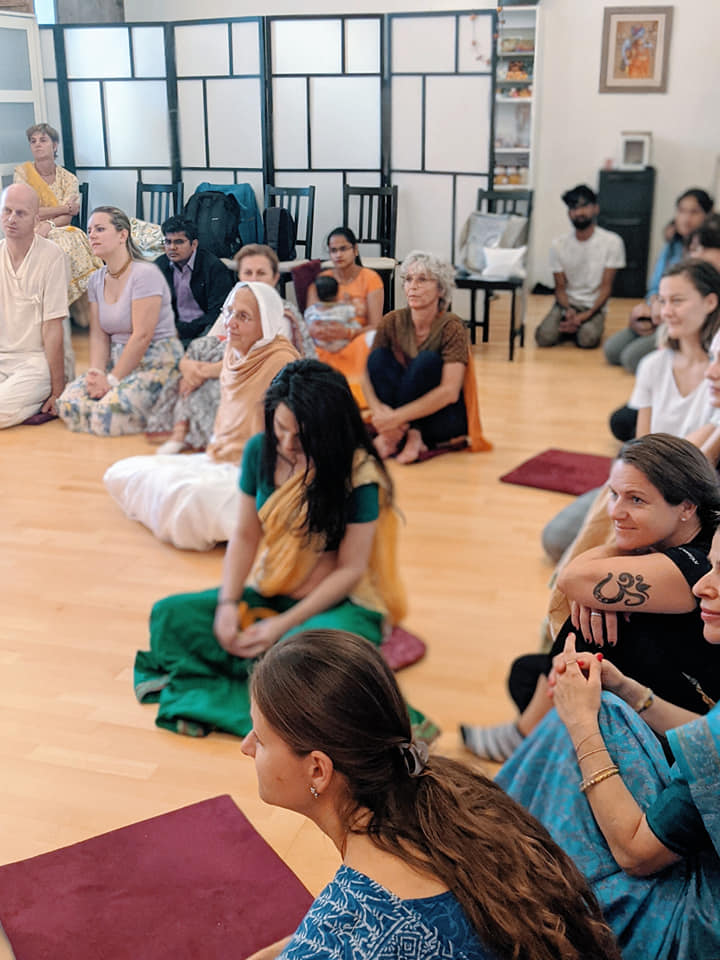It was my first visit to the preaching center in Vienna - thanks to Corona I am getting to know the smaller communities surrounding Germany. I was eagerly received by enthusiastic devotees - many of them being originally from Russian background. The devotees had arranged programs every day - an evening program, a matajis' sanga, a three-hour seminar on Saturday on the importance of mentorship in devotional life, and the Sunday feast program. All programs were well received and attended, with some devotees even coming from nearby cities and the bordering country of Slovakia. Especially now during these restricted times not many preachers are traveling, so devotees are keen for association.
Horse carts reminding of the 'old days' are taking tourists for sight-seeing tours - now they almost have to fight over the few visitors...
We concluded our excursion with a visit to the famous rose garden with more than 200 different kinds of roses. If we could only offer them to the Deities....
As a result, one’s vision can easily be clouded by managerial goals and needs. Therefore, in former times, the kings always had an aloof brahminical advisor — a Chanakya Pandit who would give directions. Srila Prabhupada explains this in the purport to the Srimad-Bhagavatam (2.7.9):
“The brahmanas, by their learned labor of love, would instruct the administrator-kings how to rule the country in complete righteousness, and thus the process would go on as a perfect welfare state.”
Of course, a first-class manager who is also brahminically inclined will always see the devotees’ individual needs first, and the needs of the project as secondary. A first class manager knows if the individual needs of the devotees are met, then his project will flourish because all the devotees are happy and nicely taken care of. They will serve giving their life and soul, and will never want to leave a project. However, practical life shows that it is not so easy for a manager to have such vision and, as a result, the managerial interests and the individual interests may easily clash.
the manager thinks: “Hang on—how can I manage without her? Maybe we can find a husband for her in our community so I will not lose her.” These are very common scenarios in our communities all around the world. Sometimes, no doubt, we might just have to have a marathon, surrender to the needs of a project and put our personal needs aside. But it cannot be a permanent situation. If it becomes a permanent situation, sooner or later devotees will move to another community. They will not stay. And we can observe this
in many communities: devotees come, they stay for some time and then move on to another place.
On the 22nd of September I returned to Simhachalam....
Your servant, Devaki dd








 RSS Feed
RSS Feed
